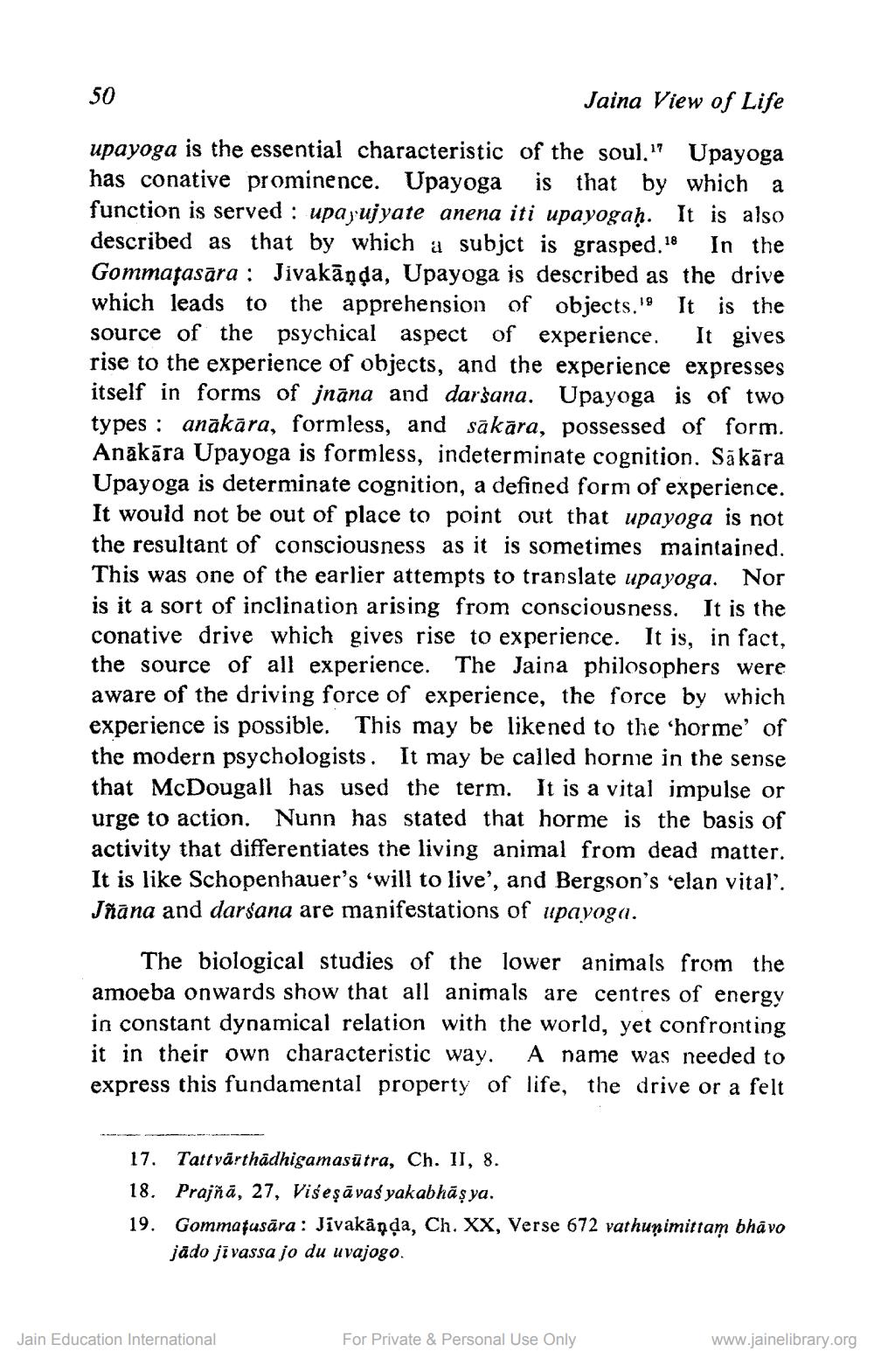________________
50
Jaina View of Life
upayoga is the essential characteristic of the soul." Upayoga has conative prominence. Upayoga is that by which a function is served : upayujyate anena iti upayogah. It is also described as that by which a subjct is grasped.18 In the Gommafasāra : Jivakānda, Upayoga is described as the drive which leads to the apprehension of objects. It is the source of the psychical aspect of experience. It gives rise to the experience of objects, and the experience expresses itself in forms of jnana and darsana. Upayoga is of two types : anakāra, formless, and sākāra, possessed of form. Anākāra Upayoga is formless, indeterminate cognition. Sākāra Upayoga is determinate cognition, a defined form of experience. It would not be out of place to point out that upayoga is not the resultant of consciousness as it is sometimes maintained. This was one of the earlier attempts to translate upayoga. Nor is it a sort of inclination arising from consciousness. It is the conative drive which gives rise to experience. It is, in fact, the source of all experience. The Jaina philosophers were aware of the driving force of experience, the force by which experience is possible. This may be likened to the horme' of the modern psychologists. It may be called horme in the sense that McDougall has used the term. It is a vital impulse or urge to action. Nunn has stated that horme is the basis of activity that differentiates the living animal from dead matter. It is like Schopenhauer's 'will to live', and Bergson's ‘elan vital'. Jñana and darsana are manifestations of upayoga.
The biological studies of the lower animals from the amoeba onwards show that all animals are centres of energy in constant dynamical relation with the world, yet confronting it in their own characteristic way. A name was needed to express this fundamental property of life, the drive or a felt
17. Tattvārthadhigamasutra, Ch. II, 8. 18. Prajñā, 27, Viseşāvas yakabhāş ya. 19. Gommafusāra: Jivakānda, Ch. XX, Verse 672 vathunimittam bhāvo
jādo jivassa jo du uvajogo.
Jain Education International
For Private & Personal Use Only
www.jainelibrary.org




